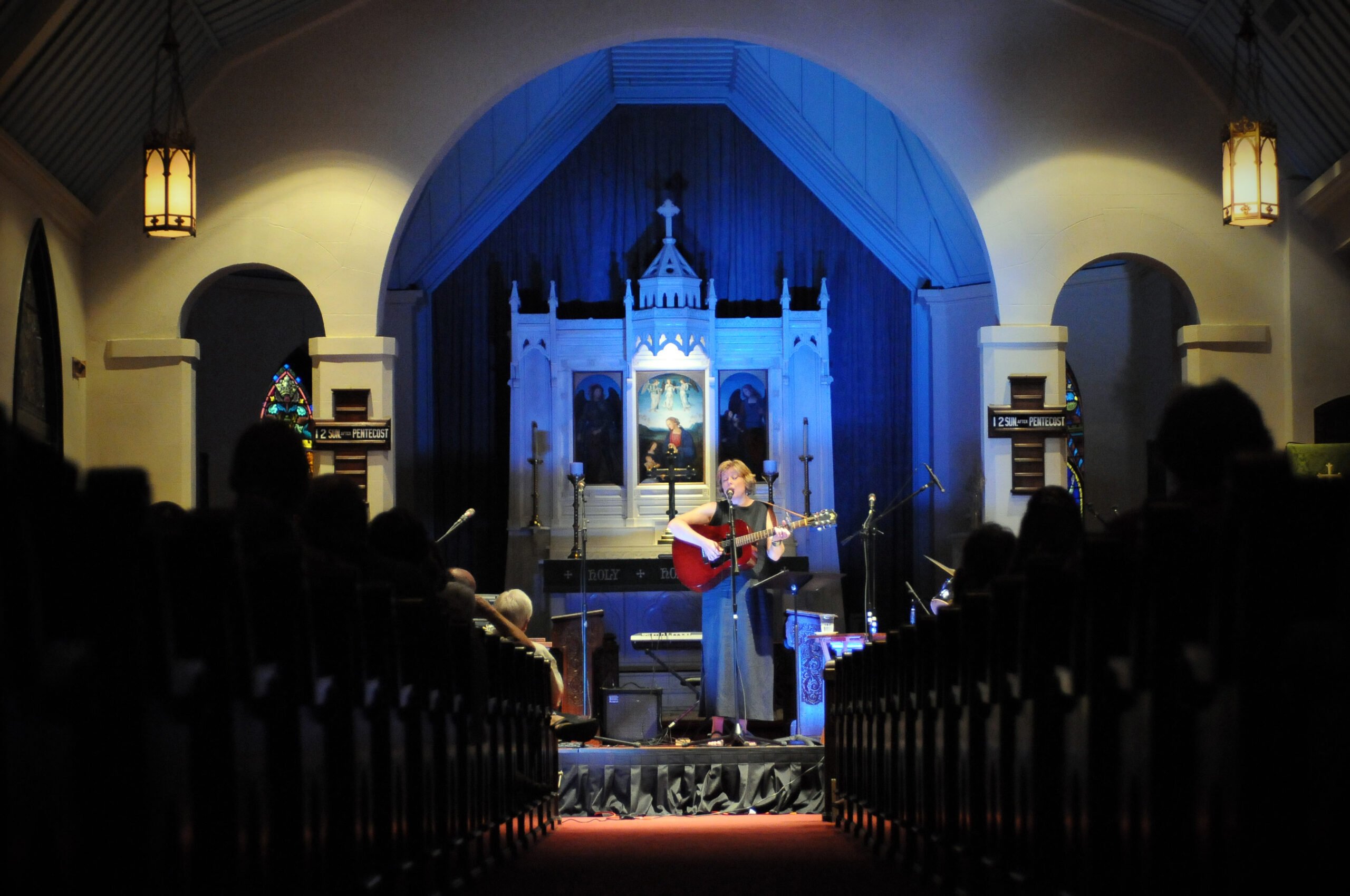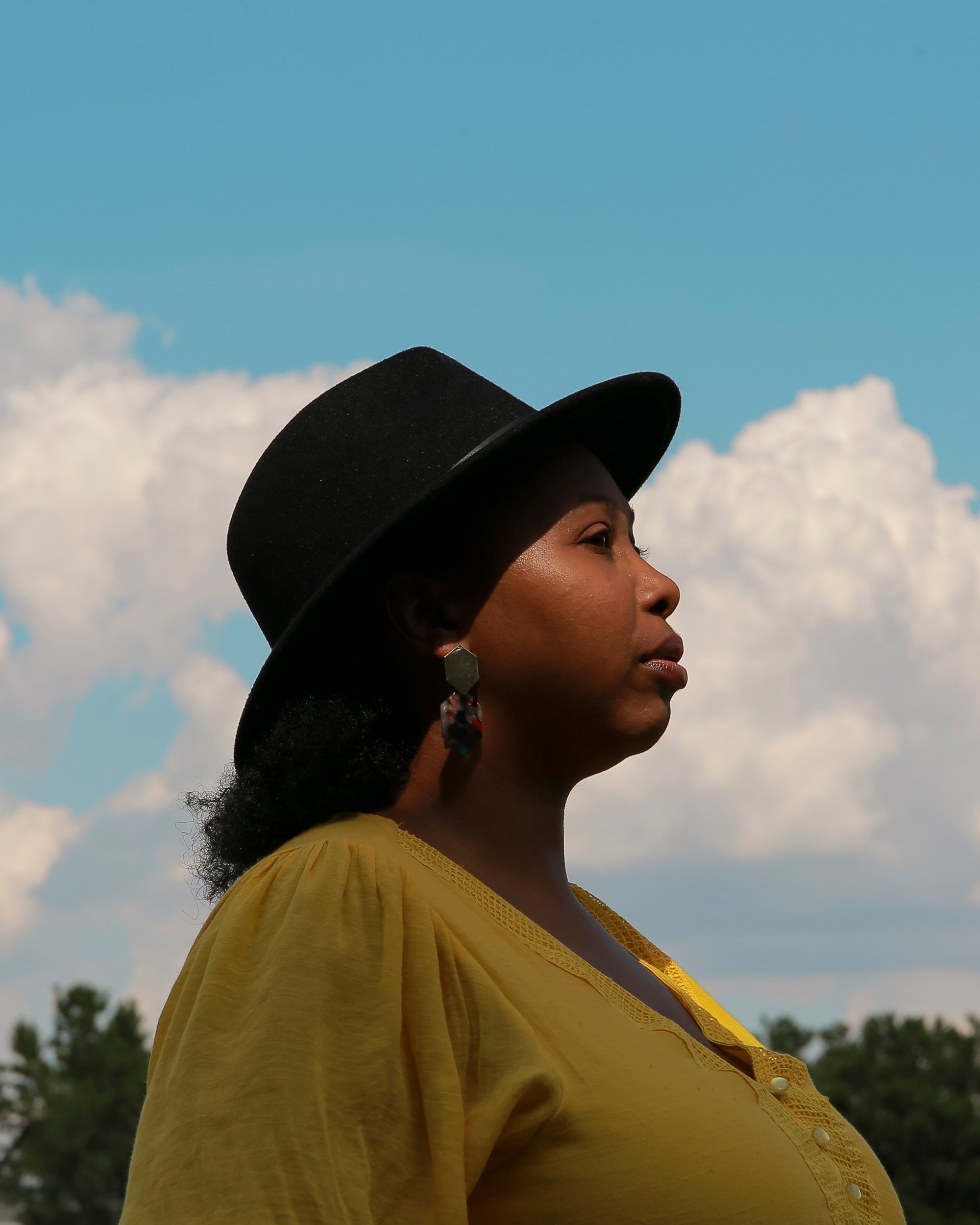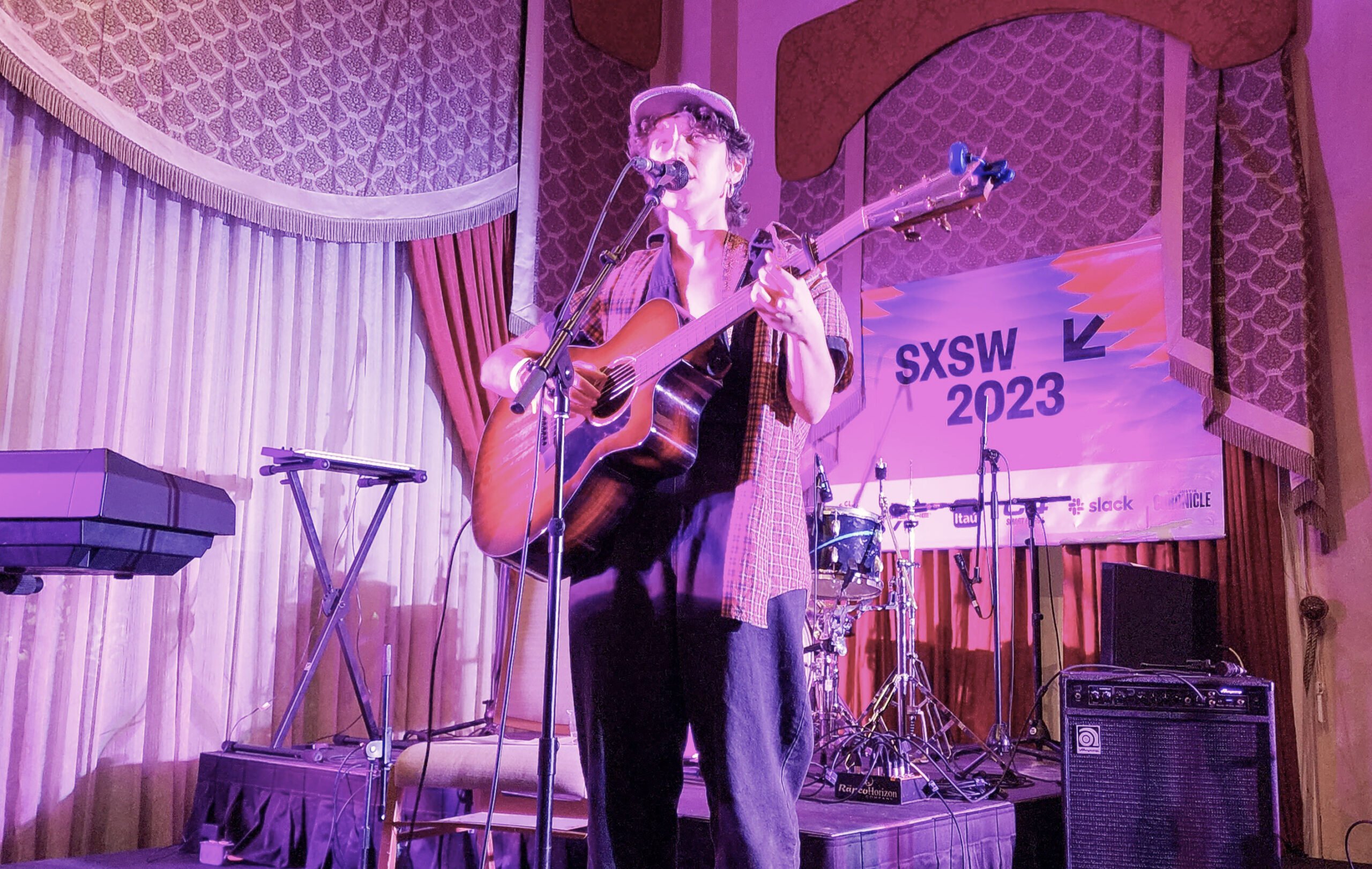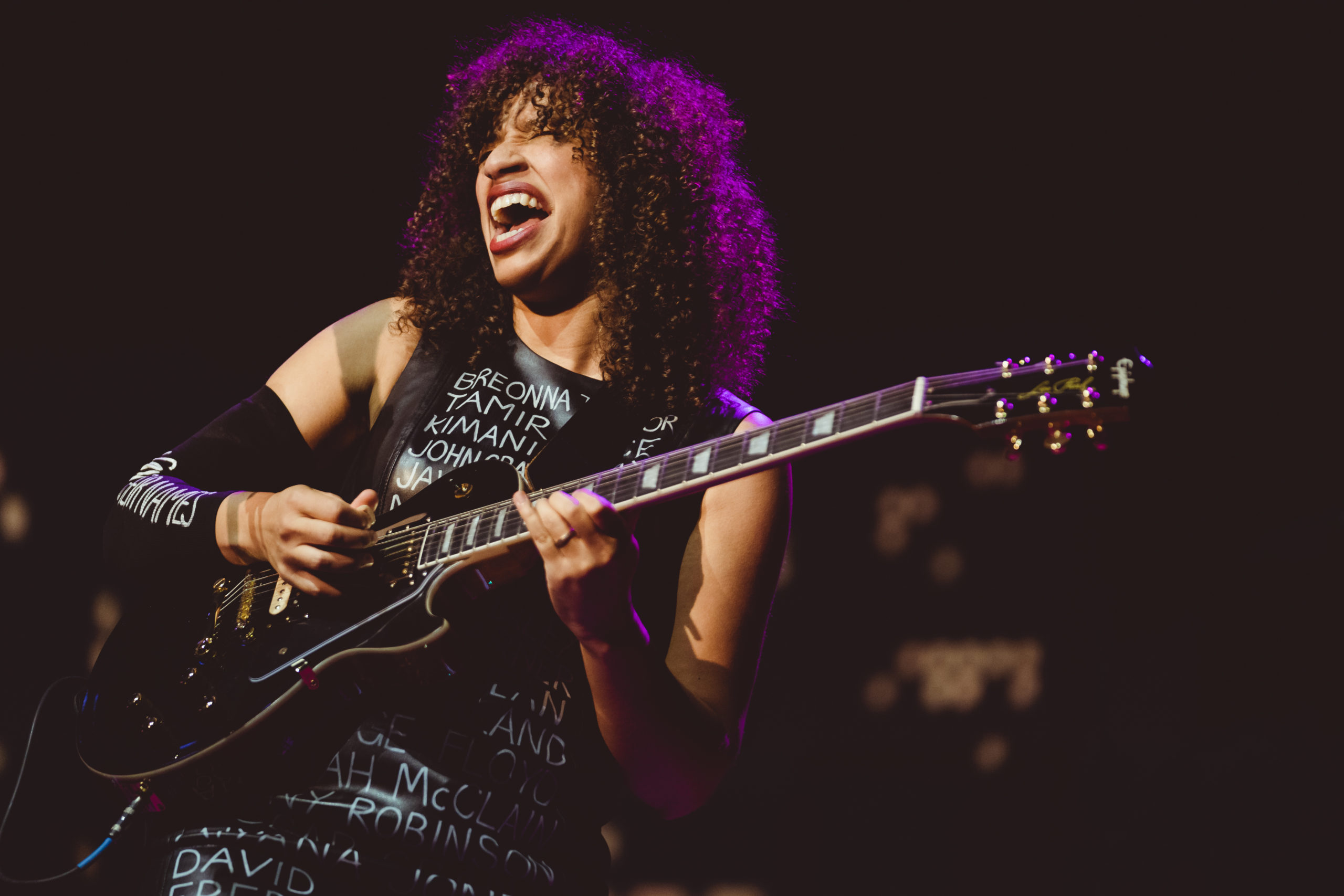
What Does “Build Back Better” Look Like for Live Music?
Black musicians were already struggling for resources and recognition before the pandemic. Now, they’re organizing and championing lasting reform in the live music industry.
In March 2020, after South by Southwest was canceled for the first time in its 35-year history, musicians in Texas began a challenging time. But none more so than Black musicians, who were already struggling for resources and recognition before the pandemic. For many of them, the last year presented both as an undue burden and an opportunity to champion lasting reform in the live music industry.
The phrase “first to close, last to reopen” became a common refrain at music venues, many of which shuttered in March on state and local government orders only to realize reopening at any point 2020 was almost unimaginable. By late spring, the National Independent Venue Association had surveyed its 2,000-plus members and confirmed the grim outlook for indie venues: roughly 90 percent said they would permanently close without federal aid. Black musicians joined the chorus of talent bookers, indie venues, and promoters lobbying for funding as millions of people went on unemployment in the opening months of the pandemic.
Adrian Quesada of the Grammy-nominated Black Pumas remembers having a conversation with the band’s manager, Ryan Matteson, the week SXSW was canceled. “Everyone thought that was crazy and that life would be on pause for about two weeks [and] then back to normal,” he said. “[Ryan] said, ‘I don’t think you’re playing another show this year.’ It was shocking but turned out to be true.”
One year later, it’s clear neither the federal stimulus nor the emergency authorization of vaccines came quickly enough to preserve the live music industry in its pre-pandemic incarnation. Historic venues like Threadgill’s in Austin and statewide indie show promoters like Margin Walker folded due to COVID-19.
Now, despite Governor Greg Abbott’s push to fully reopen the state for business, live music venues continue on life support, many months away from recapturing pre-pandemic audiences and revenues. Black musicians—many of them instructed in recent years to build up their touring revenue—have for years dealt with a lack of dedicated venues for their music, infrequent attention from festival bookers, and a dearth of Black venue owners, promoters, and label executives; the pandemic has only compounded those hardships.
“Everything that has happened in the past year has kickstarted change in an industry that severely needed it,” said KUTX on-air personality Aaron “Fresh” Knight. “We’ve been shown that if the white rock, folk, or country act is struggling, you better believe the Black artists are struggling twice as much.”
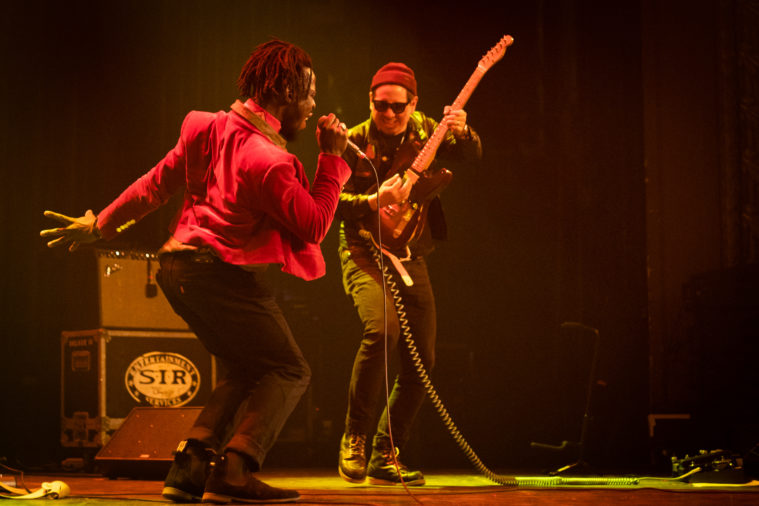
Austin-based Black Pumas have had perhaps the best year of any band in Texas, which culminated in a primetime Inauguration Day performance on national TV and three Grammy nominations, including Album of the Year for their eponymous debut and Record of the Year for their song, “Colors.” But Black artists who have yet to break onto the national stage haven’t fared nearly as well. Issues that were becoming harder to ignore prior to the pandemic came front and center.
“The financial stability of artists in this city has been dropping yearly, and the pandemic brought that reality to the forefront,” said KUTX on-air DJ Confucious Jones. A 2015 report commissioned by the City of Austin found that affordability issues, including rising rents for both musicians and venues, forced some musicians in Austin to consider moving out of the city altogether. “Black music in Austin was already holding on by strings due to a lack of citywide support, and the shutdown made it worse.”
During the pandemic, and in the aftermath of George Floyd’s death, Austin Music Commissioner Jonathan “Chaka” Moore led an initiative to push the City of Austin to earmark a portion of hotel tax revenues, totalling $3 million annually, for the creation of a Black Live Music Fund to support Black musicians by directing funds to Black musicians and organizations working to advance racial equity in Austin’s music scene, an initiative unanimously supported by the Austin Music Commission.
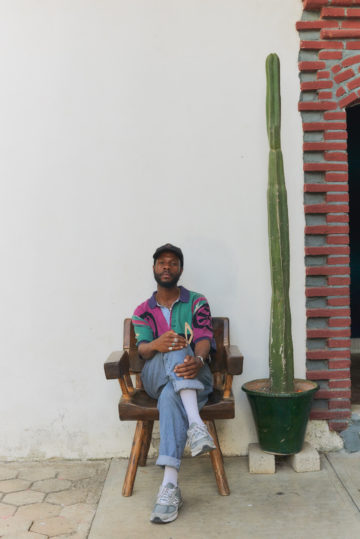
As Austin and other Texas-based Black musicians seek support from venues and institutional channels, they’ve also continued to press their careers forward. Some, like Houston rapper Anthony Obi, aka “Fat Tony,” have found success. “Over the past year, I’ve released my first live album, two studio albums, sold more records than ever before, and had an artistic breakthrough with my latest release, ‘Exotica,’” he wrote in an email shortly before two recent outdoor performances in Texas. But it’s not easy or guaranteed. “I have no idea where we are in terms of getting back to normal. I don’t think we’re anywhere near touring or performing indoors yet. I plan on continuing to play virtual concerts and a few occasional outdoor shows for the foreseeable future.”
Austin-based Jackie Venson has become one of the capital city’s most buzzed-about artists over the last year, in part by challenging the white male gatekeepers of Austin’s live music scene. Midway through 2020, when Venson was asked to perform for the ACL Radio’s Blues on the Green event, she turned down the opportunity until ACL Radio host Andy Langer added Black artists to the lineup. It was the kind of solidarity that Black musicians will likely be forced to rely on post-pandemic until institutional remedies like the Black Live Music Fund are implemented.
“In Austin, we’ve seen so many times where those in power will say they’re committed to change and being progressive,” KUTX’s Knight said. “But after things go back to normal, will the powers that be go back to ignoring the rappers, R&B singers, Latin artists?”
Austin R&B artist Nayome is one of many Black musicians who’ve seen a sense of community and solidarity emerge due to the pandemic. Facilitating this community are Black-led organizations like SixSquare, which bills itself as a “gathering place for everyone to enjoy Austin’s unique Black arts, music, history, and culture,” and the Black Austin Musicians’ Collective, which hosts events and meetings for Black musicians in the Austin area.
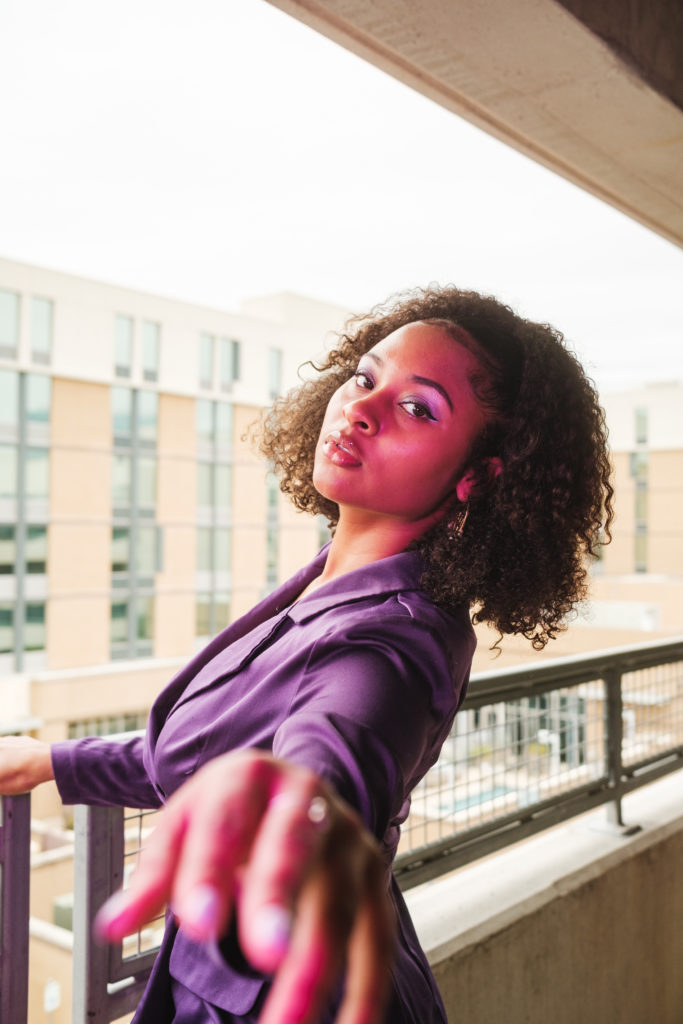
“The pandemic was very unexpected and caused a lot of uncertainty, tragedy, but it also inspired normalization of virtual interacting amongst the music industry,” Nayome said. “I think the Black community in Austin has connected throughout all of this. We’ve been through a lot of trauma throughout the pandemic by witnessing various racial injustices, and we’ve turned to each other for support.”
That growing sense of community has helped Black musicians grapple with the emotional and mental health toll of the pandemic, financial and professional struggles, and racial injustices.
“I knew from the moment I heard SXSW was canceled in 2020 that live music was going to be something that dramatically changed,” Nayome said. “But mental health was something I did not imagine I needed to work on. After a significant depletion of human connection, constant triggering with the injustice killings of people from the Black community, and a pandemic to worry about on top of that, [I found myself] in a terrible place mentally.” Nayome turned to friends and family and organizations like Black Fret for support.
Chris Beale of the Austin hip-hop group Magna Carda noted other previously overlooked issues: “Most local Black musicians were starting to discover, across all genres, that we were all having the same issues in venues without talking to one another.” Those issues include being booked less frequently and paid less equitably than similar white artists. “Now we’ve had some time to really organize and bring these issues to light.”
Nick Clark, a Dallas/Fort Worth-bred bass player who has collaborated with artists ranging from Tameca Jones to Kanye West, has already seen the increased community element play a role in evolving the Texas live music scene.
“Since musicians had time to think about how they were being treated, the pandemic led to many organizing efforts to make the music scene more equitable,” said Clark. Clark offered three examples as evidence of the strength-in-numbers approach of Black musicians during the pandemic: Blues on the Green, for the first time, allowed a Black musician—Jackie Venson—to curate a performance lineup. SXSW rewrote contracts to reduce radius clauses, which initially restricted musicians from participating in other live streaming events for a period of one month following their performance, due to the organized stance of largely Black artists. And the Los Angeles-based Recording Academy, which presents The Grammy Awards, launched a Black Music Collective that requires each state’s Grammy chapter to reach out to Black musicians for inclusion.
Increasingly, Black musicians are charting a new way forward that doesn’t rely on traditional venues, festivals, or other industry gatekeepers. “The shutdown has opened a lot of people’s eyes,” Knight said “There has to be continued change moving forward well after the shutdown is over.”
Below are Joah and Kahron Spearman’s go-to listens this week:
Read more from the Observer:
-
ERCOT Is Refusing to Release Records On How it Prepared for the Winter Storm: The nonprofit corporation is asking Ken Paxton’s office for permission to ignore requests seeking information on the costliest winter storm in the state’s history.
-
Portraits of the Pandemic—Part Two: Last summer, we talked to nine Texans about their experiences with COVID-19. Now, we check back in with those folks—and hear from a few new ones—who have graciously shared their stories.
-
Industrial Facilities Released Millions of Pounds of Illegal Pollution During the Winter Storm: Many of them won’t face any consequences for the excess emissions that they pumped into the air, endangering the lives of communities downwind.
